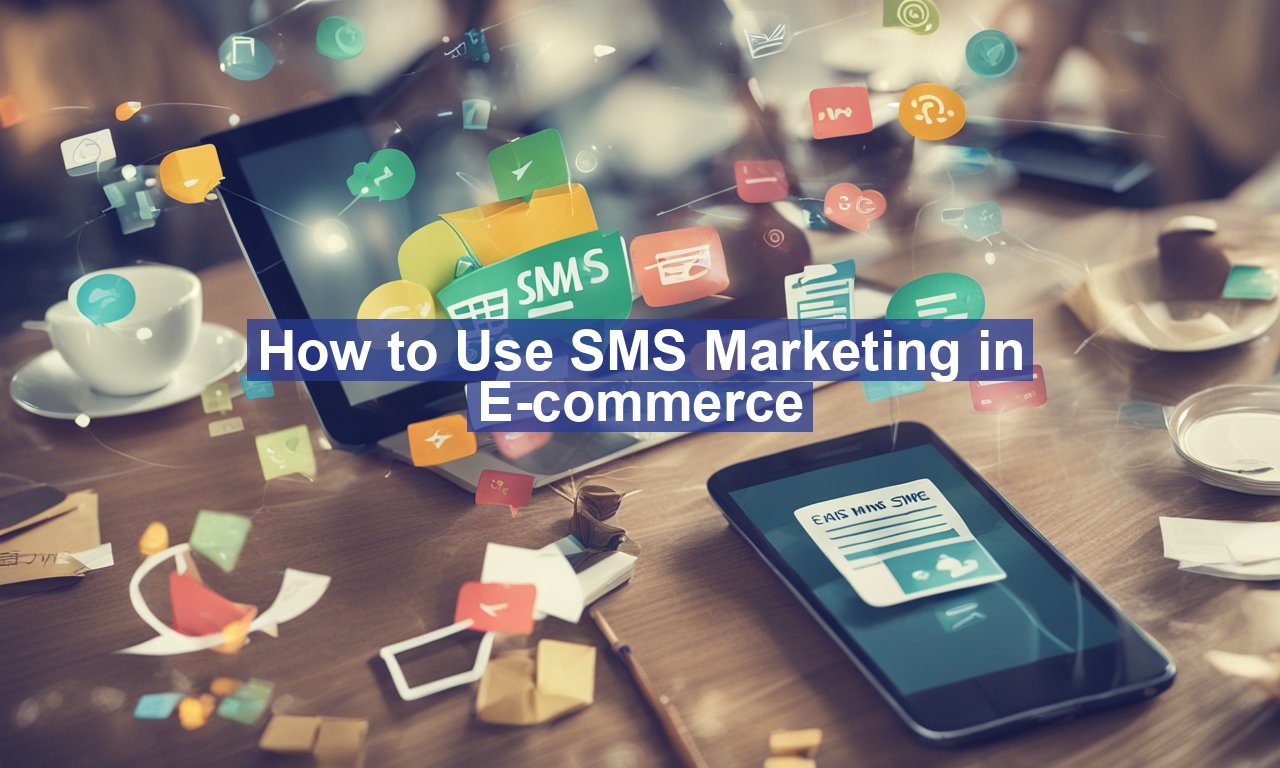How to use SMS marketing in e-commerce in the ever-evolving landscape of e-commerce, staying connected with customers is more crucial than ever. One of the most effective methods to achieve this is through SMS marketing. Imagine a strategy that boasts open rates as high as 98%, far surpassing those of email marketing. That’s the power of SMS marketing in action.
Not only does it help e-commerce businesses maintain a direct line to their customers, but it also boosts sales, customer engagement, and brand loyalty. In this article, we’ll dive deep into how you can harness the power of SMS marketing to fuel your e-commerce growth.
Understanding the Basics of How to Use SMS Marketing in E-commerce
How to use SMS Marketing in e-commerce is the practice of sending promotional text messages to targeted groups of consumers. It’s a direct line of communication that allows you to interact with your customers instantly. Unlike emails, text messages don’t sit unread in an inbox—they’re usually opened within minutes of being received.
Why Choose SMS Marketing for E-commerce?
With the digital marketplace becoming more saturated, e-commerce businesses need efficient ways to stand out. Here’s why SMS marketing could be your secret weapon:
- Immediate Reach: SMS messages are typically read within 3 minutes of delivery, making them perfect for time-sensitive offers.
- High Open Rates: With an open rate of 98%, SMS trumps email marketing when it comes to capturing audience attention.
- Personalized Messaging: Tailor messages based on customer behavior, preferences, and purchase history to boost engagement.
For more detailed insights on why businesses should prioritize SMS marketing, you can refer to this Forbes article.
Setting Up Your SMS Marketing Campaigns
1. Obtain Permission
The first step in SMS marketing is acquiring consent from your customers. This often involves customers opting in via a web form, checkout page, or through a keyword sent to a dedicated SMS number. Adhering to compliance regulations is crucial, as sending unsolicited messages can lead to penalties and damage your brand’s reputation. Refer to the FCC guidelines on text message spam for more information.
2. Choosing a Reliable SMS Platform
Select an SMS marketing platform that offers features aligned with your business goals. Look for platforms that provide automation, segmentation, personalization, and analytics. Some popular options include EZ Texting, Twilio, and Klaviyo.
3. Crafting Your Message
Your message should be concise, clear, and compelling. Include a clear call-to-action (CTA), whether it’s clicking a link, using a discount code, or visiting your site. Avoid using abbreviations that may confuse customers, and make sure your brand name is visible.
Best Practices for Effective SMS Marketing
Personalize Your Messages
Addressing your customers by name and referencing past purchases can significantly boost engagement. Use your SMS platform’s capabilities to segment your audience and tailor your messages accordingly.
Time Your Messages Wisely
Consider your audience’s time zones and daily routines when scheduling your messages. No one appreciates being woken up by a marketing message. Optimize send times to maximize engagement without annoying your recipients.
Include Multimedia Content
Enhance your messages by incorporating Multimedia Messaging Service (MMS) elements like images and GIFs. Visual content can better illustrate your offers and engage customers in ways plain text cannot.
Measuring Your SMS Marketing Success
Tracking the performance of your SMS campaigns is crucial for understanding their impact. Here are some key metrics to monitor:
- Delivery Rates: Ensure your messages are reaching their intended recipients.
- Open Rates: While generally high, it’s still essential to monitor how many recipients are actually opening your messages.
- Click-Through Rates (CTR): Measure the proportion of recipients who clicked on a link in your message.
- Conversion Rates: Track how many recipients completed a desired action, such as making a purchase.
Avoiding Common Pitfalls in SMS Marketing
While SMS marketing is powerful, misuse can lead to unintended negative consequences. Here are some things to avoid:
- Over Messaging: Bombarding your customers with too many messages can lead to opt-outs and brand fatigue.
- Lack of Personalization: Sending generic messages can result in low engagement rates.
- Non-Compliance: Ensure that you’re adhering to legal requirements to avoid fines and maintain customer trust.
In conclusion, SMS marketing presents a formidable opportunity for e-commerce businesses to connect with customers, increase sales, and build loyalty. By understanding your audience, crafting meaningful messages, and measuring success, you can turn this channel into a cornerstone of your digital marketing strategy. For further reading on optimizing digital strategies, the Social Media Examiner offers valuable insights worth exploring.


